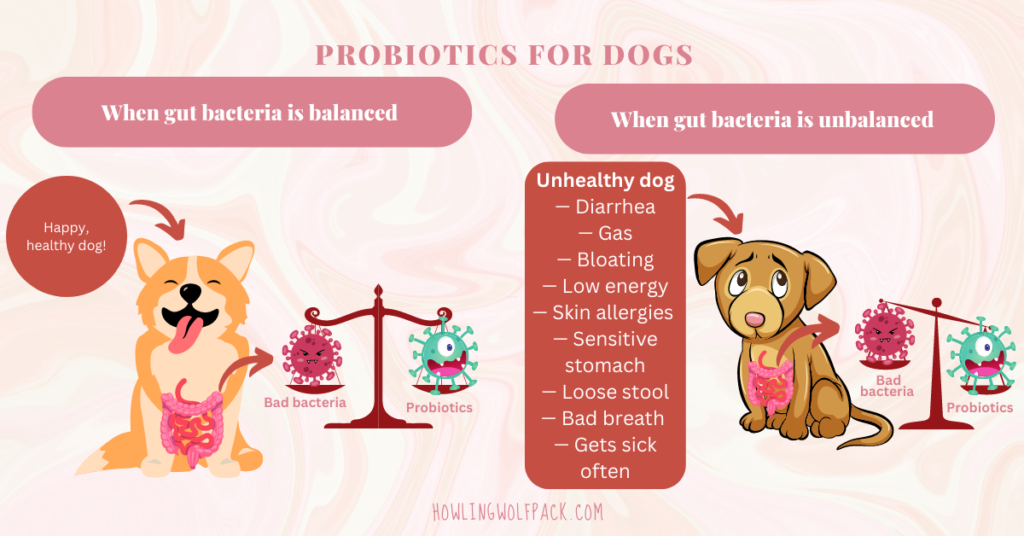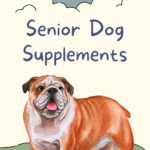The average lifespan of a dog is 10-13 years, though various breeds may live longer than this. As they enter their senior years, it’s important to recognize that their needs might change.
As a dog ages, they often need a little help to retain quality of life. Fortunately, there are many senior dog supplements available that can ease any pain or discomfort and help your dog continue all of the activities they love without hindrance.
The Benefits of Senior Dog Supplements
There are various benefits of dietary supplements, provided you do the research and give your dog the best one for their personality, issues, and health conditions.
- Joint Health: Older dogs may have stiff joints and more difficulty with mobility than when they were younger. Supplements can aid their mobility.
- Digestive Help: Supplements may be able to aid digestive health, keeping food moving through their system and avoiding problems.
- Fill Nutritional Gaps: Senior dogs may become fussy eaters and encounter nutritional gaps, which supplements can help with.
- Cognitive Support: If your dog is becoming forgetful or confused in their old age, some supplements can help with cognitive function.
- Hydration: Hydration supplements can ensure your dog isn’t becoming dehydrated, which can come with a whole host of problems.
- Dental Health: Studies have shown the severity of periodontal disease in dogs increases with age, so staying on top of their dental health is critical.
- Weight Management: As your senior dog is less active, ensuring they maintain a healthy weight can be tricky, but supplements can help.
7 Best Supplements for Older Dogs
The best supplement for your senior dog will depend on your own observations. There are a few important questions to ask yourself before deciding which supplements to research and invest in:
- What issues have you noticed in your dog?
- What has your vet recommended?
- What physical condition is your dog in?
Once you have answers, you can break down the ideal supplements a little more.
1. Multivitamins to Fill Nutritional Gaps
While high-quality dog food should come with all the nutrients your dog needs to thrive, a lower food drive is a fairly common sign of old age. As they eat less, they might find it more difficult to get everything they need to remain healthy.
A dog multivitamin can aid in filling these gaps and ensuring they have all of the nutrients they need, keeping them comfortable, healthy, and perhaps even extending their life. Feeding this in combination with a high-quality diet is ideal.
2. Probiotics for Digestive Health
Probiotics can promote gut health by helping to maintain balance in the digestive tract. Probiotics can also help your dog absorb nutrients and provide relief from diarrhea and constipation, which can be both messy and uncomfortable for you and your dog.

3. Omega-3 Fatty Acids for Joint Support
Studies have shown that Omega-3 fatty acids can assist with joint health. Dogs with osteoarthritis were able to reduce their prescription medicine dosage after taking the supplement for twelve weeks, as the supplement aided with pain and mobility, allowing less dependence on prescription painkillers.
But your dog doesn’t need to have osteoarthritis to enjoy the health benefits of fish oil. Omega-3 fatty acids can support healthy skin and reduce even the slightest stiffness in joints, keeping your dog enjoying their walks and other physical activities and enrichment for longer.
4. Antioxidants for Cognitive Health
Changes in behavior are also common in senior dogs, as they may be more prone to confusion and forgetfulness.
Veterinarians recommend a high level of antioxidants for this, as it’s been proven that giving your dog antioxidant-rich foods can reduce their cognitive decline.

5. Hydration Supplements
Hydration supplements can be helpful in ensuring your dog gets enough water. Aging pets may be more prone to dehydration for a number of reasons, including not wanting to get up as much to find a drink of water, and simply forgetting to hydrate themselves.
(Wet food formulated for senior dogs can also be very useful in aiding hydration!)
6. Fiber Supplements to Help Dogs Feel Full
Because senior dogs likely move less than younger dogs, their metabolism isn’t burning off as many calories and they may be prone to weight gain. While it can be tempting to let them be in an attempt not to cause them any discomfort, weight gain sets the stage for osteoarthritis and other issues.
Fiber supplements can help your dog feel full, so they’re less likely to eat more than they need to.
7. Water Additives for Dental Health
Lastly, water additives can be helpful for dental health. Because of periodontal disease, which can become very painful in senior dogs who’ve been suffering with it for a long time, staying on top of dental health is crucial to your dog’s comfort.
As well as water additives for dental health, you can also provide dental chews to help clean their teeth if your dog still has a healthy appetite for treats.
Supplement Considerations
When making the decision to give your dog supplements, make sure to always research the supplement you’re buying and read all of the ingredients. Although between 10-33% of dogs and cats are given supplements by their owners in the United States, they are less regulated than human supplements, so you must do your own due diligence—and ask your vet for advice.
Don’t forget to slowly transition the new supplement into your dog’s diet.
Final Thoughts
Just because your dog is a senior doesn’t mean they have to hang up their dog leash and fetch ball. Adding supplements to your dog’s diet can be extremely helpful in keeping them active and happy, reducing pain, and ensuring they can still enjoy all of their regular activities.
It’s important to frequently discuss your dog’s health and diet with your vet, who will be able to give you advice in terms of the best supplements to give your pup.



